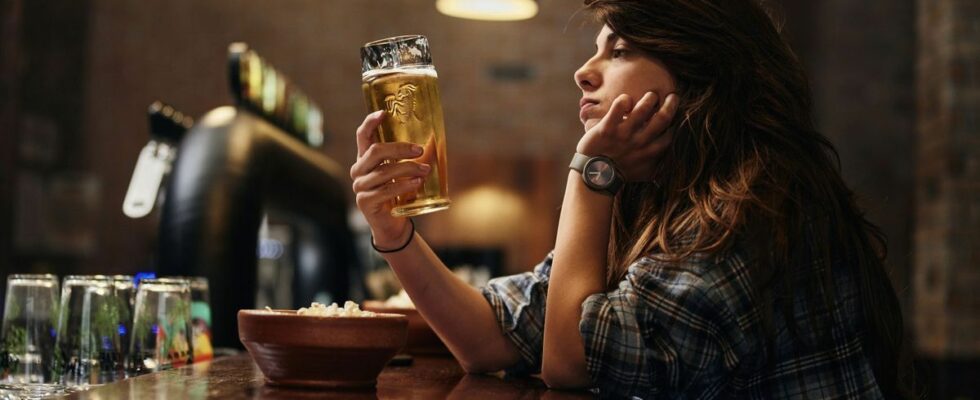Published on
updated on
Reading 3 min.
Thousands of contents promoting alcohol, encouragement to drink made by influencers, targeted algorithms… social networks constitute a “new wild west” for the promotion of alcohol among young people, without effective regulation, associations denounce In France.
Between June 2021 and January 2024, Addictions France, which carries out awareness and prevention actions for all types of addictions, counted no less than 11,300 pieces of content of this type on networks such as Instagram and TikTok, issued by 802 alcohol brands and 483 influencers.
“The exposure of young people to alcohol on these networks is major“, alerted Bernard Basset, the president of the association, on Thursday, presenting the results of a report carried out with the help of the Avenir Santé association.
On these platforms, which have grown enormously in recent years, brands can “push the boundaries of creativity to create attractive advertising concepts with a sophisticated aesthetic“, observes the report.
Among the most represented, we find the Ricard, Heineken and Aperol Spritz brands, which offer attractive content by associating alcohol with themes such as conviviality, celebration, holidays, fashion, etc.
Another example, spotted by Addictions France: that of Bombay Sapphire gin, belonging to the Bacardi-Martini group. With 340 pieces of content identified in three years, the brand has become extremely visible among young people in a short time, underlines the association.
To reach as many people as possible, these brands often choose to partner with influencers, who accept commercial collaborations to promote their products.
Like the influencer Lenasituations who regularly promotes alcohol through partnerships, to her 4.6 million subscribers, points out the report.
However, when mega influencers, who have more than a million subscribers, manage to reach very large communities, the smaller ones generally have a very engaged community.
“The investment by alcohol manufacturers is massive“, denounced Thursday Franck Lecas, head of the pole”public policy projects” at Addictions France.
Paltry sanctions
“Beautiful and pleasant content, intrusive advertisements that we receive on our feed between two stories, selfies of influencers taken at sponsored parties…: 25% of young people who have seen this type of content say they want to consume“, he warned.
According to a study by the School of Advanced Studies in Public Health carried out as part of the association’s project, 79% of 15-21 year olds see advertisements for alcohol every week on social networks.
However, the French law known as Evin, which regulates marketing and alcohol, is today insufficient, according to Addictions France.
Adopted in 1991, when social networks did not exist, the main objective of this law was to create an environment more favorable to health, particularly for young people.
From, “she suffered a number of blows“, suffering from the active lobbying of alcohol producers, noted Claude Evin, former Minister of Health at the origin of this law.
And the June 2023 law governing the activity of influencers was a missed opportunity, deplored Addictions France, by not prohibiting them from advertising in favor of alcohol. She simply reminded them that they must respect the Evin law.
“A year after this law, nothing has changed; we must return to the original spirit of the Evin law and ban all forms of advertising for alcohol on the networks“insisted Myriam Savy, advocacy director for Addictions France.
The “influencers” law set up a brigade of 15 agents responsible for monitoring the content (all subjects combined) of 150,000 content creators. “Clearly insufficient” means, denounces the association.
Although the legal proceedings it has initiated have resulted in victories in 85% of cases, these actions remain long and complex. As for the sanctions imposed, they are “not dissuasive”, regrets the association.
The maximum fine incurred for violations of the Evin law amounts to 75,000 euros, a “derisory” amount for industrial groups investing tens of millions of euros in their advertising campaigns, she illustrates.

